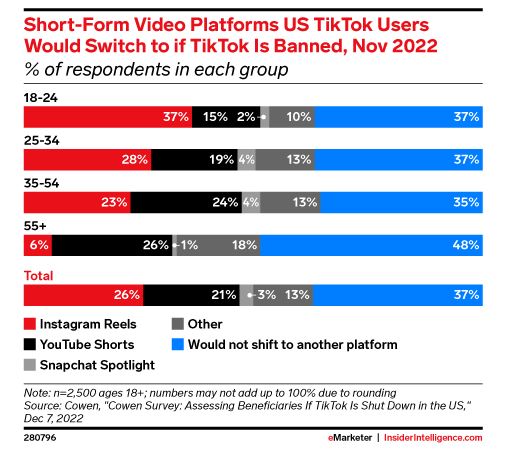TikTok continues to be the app on everyone’s lips. Popularity of the social media giant remains high, especially amongst young audiences. But in this case not all press is positive. With government device bans in the US, EU, Canada, Australia, and the UK, all eyes are watching to see if outright national TikTok bans will follow.
While we’re still a ways away from this drastic measure, if one is to happen at all, it’s worth exploring what would happen should access to TikTok be removed.
Why Calls for a TikTok Ban are Growing?
Before we get into the thick of it, let’s quickly recap just how we got here. Ever since Tiktok’s inception, there’s been concerns over foreign influence and access to personal data. This is because Tiktok’s parent company Bytedance is based in Beijing, China. Such concerns have only grown under this era of data privacy.
There was also unproven claims the app has spied on American journalists, which only heightened tensions. Ever since, TikTok has made several attempts to diminish concerns, including setting up foreign data centres within Europe and America. This has done little to appease its critics across the globe, with bans continuing to roll out.
Who Will be Impacted?
Should a national ban be introduced, the most obvious loser would be TikTok itself. With offices based in the US, Tokyo, France and more, a ban would impact thousands of employees across the globe. Then there’s the user base. TikTok has an estimated 1 billion users across the globe who rely on the platform for connection, entertainment, and increasingly, as a source of news. This is not even including the estimated 3.1 million influencers that earn a living on the platform.
With so many engaged eyeballs cut from their source, someone is bound to benefit. The following poll from Insider Intelligence showcases the potential audience shift.

As seen above, Instagram Reels is shown to be the biggest benefactor, but it’s worth noting the significant portion of users who’ve said they wont turn to another platform. With this much demand, it’s only a matter of time before a western owned entity attempts to recreate TikTok with their own app.
The Larger Significance of a TikTok Ban
What’s interesting about the focus on Tiktok is that it’s processes are not all that different from its main competitors. While there have been privacy concerns and even fines issued to the likes of Meta, Snapchat, and Youtube over data storage, none of them have faced the level of scrutiny TikTok is now under.
This is important because there is an element of misinformation at play. For example, the majority of ownership in TikTok is no longer Chinese. Bytedance says that in it’s current state, 60% of its shares are owned by non-Chinese investors such as U.S investment firms Carlyle Group and Kohlberg Kravis Roberts and Japan’s SoftBank Group. This is lost in the narrative of possible Chinese surveillance.
This is also an entirely new precedent for lawmakers, who struggle to grasp the finer details. Judging by the naivety demonstrated by lawmakers during a US bipartisan congressional hearing, it’s a challenge they don’t fully understand. This means they approach these issues with preconceived bias and political pressure instead of the facts.
There’s also a greater political risk in banning the app. Ramifications are not just tied to upset users and digital influencers, but to multinational diplomatic relations between China and the rest of the globe.
What’s Next?
So what’s next for the embattled media giant? Not much at the moment. The US government has signalled forward momentum on a nation-wide ban, but the results of these efforts are yet to be seen.
What’s more interesting is if the principles that have led to these bans will be applied to the entire digital ecosystem. If they do, don’t be surprised to see your second favourite app as the target of a similar campaign.








